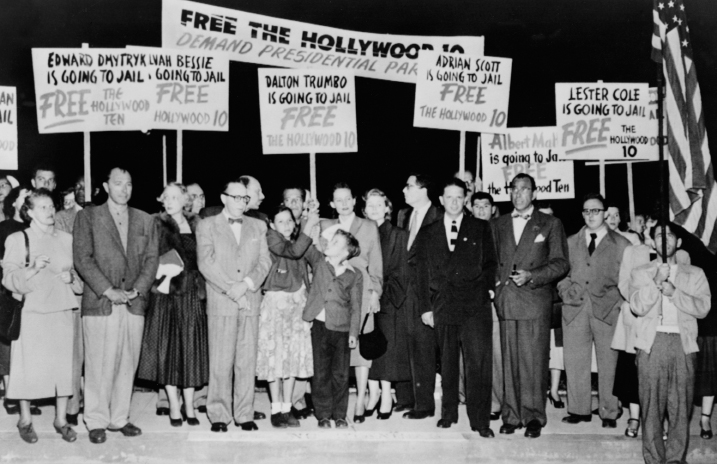The Hollywood Ten
In 1947, in the wake of the unfolding Cold War with the Soviet Union, conservative members of Congress began investigating Hollywood for alleged subversive and communist ties. That year, aggressive witch-hunts for political radicals in the film industry by the House Un-American Activities Committee (HUAC) led to the famous Hollywood Ten hearings and subsequent trial. (HUAC included future president Richard M. Nixon, then a congressman from California.)

During the investigations, HUAC coerced prominent people from the film industry to declare their patriotism and to give up the names of colleagues suspected of having politically unfriendly tendencies. Upset over labor union strikes and outspoken writers, many film executives were eager to testify and provide names. For instance, Jack L. Warner of Warner Brothers suggested that whenever film writers made fun of the wealthy or America’s political system in their work, or if their movies were sympathetic to “Indians and the colored folks,”11 they were engaging in communist propaganda. In addition, film producer Sam Wood, who had directed Marx Brothers comedies in the mid-1930s, testified that communist writers could be spotted because they portrayed bankers and senators as villainous characters. Other “friendly” HUAC witnesses included actors Gary Cooper and Ronald Reagan, director Elia Kazan, and producer Walt Disney. Whether they believed it was their patriotic duty or they feared losing their jobs, many prominent actors, directors, and other film executives also “named names.”
Eventually, HUAC subpoenaed ten unwilling witnesses who were questioned about their memberships in various organizations. The so-called Hollywood Ten—nine screenwriters and one director—refused to discuss their memberships or to identify communist sympathizers. Charged with contempt of Congress in November 1947, they were eventually sent to prison. Although jailing the Hollywood Ten clearly violated their free-speech rights, in the atmosphere of the Cold War many people worried that “the American way” could be sabotaged via unpatriotic messages planted in films. Upon release from jail, the Hollywood Ten found themselves blacklisted, or boycotted, by the major studios, and their careers in the film industry were all but ruined. The national fervor over communism continued to plague Hollywood well into the 1950s.